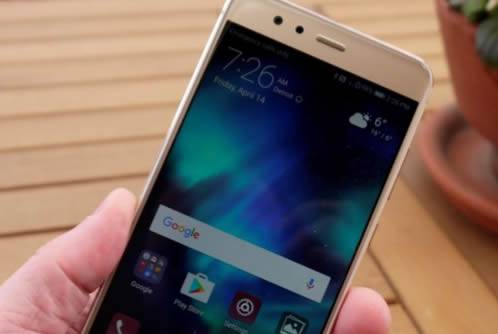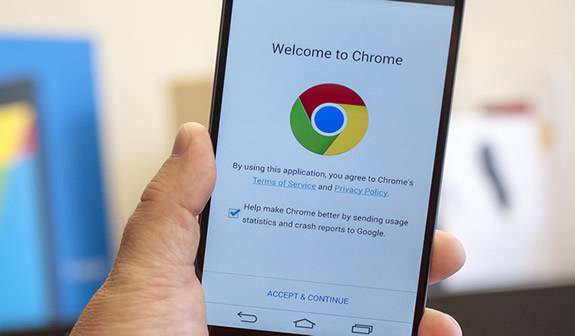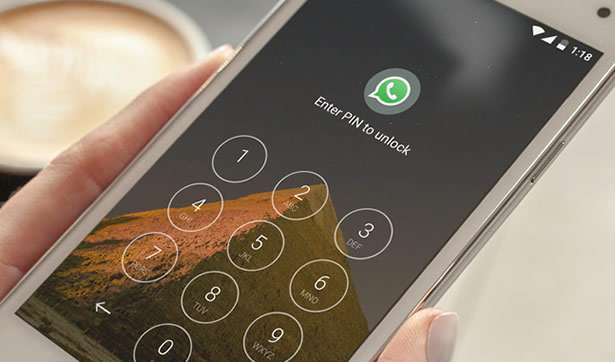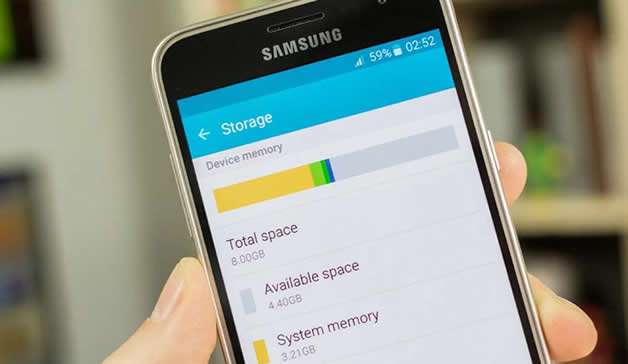It can be very frustrating when your VPN keeps disconnecting on your Android device. Fortunately, there are a few steps you can take to help resolve this issue and keep your connection stable. Here are some suggestions that may help:
1. Check if the problem is with the server you’re connected to – try connecting to different servers in case one of them is experiencing issues or has poor connectivity
2. Make sure that you have enough data allowance for the service – some networks will restrict access if too much data has been used
3. Check whether other apps on your device are using up bandwidth – having multiple applications running at once could cause the connection to drop
4. Ensure that you have all of the latest updates installed on both your phone and VPN app
5. Restart both your phone and router by switching each off then back on again
6. If possible, switch from Wi-Fi to mobile data as this sometimes results in improved performance
7. Try uninstalling and reinstalling the VPN app itself in order to reset any configurations or settings which may be causing an issue
If none of these tips successfully rectify the issue, it’s best to contact customer support from either your network provider or VPN service directly so they can investigate further into why this keeps happening for you specifically .
How do I stop my VPN from disconnecting?
Why does my VPN keep turning off on my phone?
It can be frustrating when your VPN keeps turning off on your phone. There are several possible reasons why this could happen, and thankfully there are a few steps you can take to troubleshoot the issue and get the VPN back up and running. To start, here are some potential causes of this issue:
1) You have not enabled “Always-on” in the settings of your VPN app;
2) Your device is set to enter sleep mode after a certain period of time;
3) An antivirus or firewalls on your network may be blocking connections from the server.
To fix these issues, here’s what you need to do:
1) Open your VPN app settings and enable Always-on if available;
2) Disable any sleep modes that may turn off Wi-Fi/cellular data after a period of time;
3) Check for any firewalls or antivirus programs that may be blocking connections from the server (you should whitelist or disable them). Additionally, it might also help to reinstall the VPN application itself as well as restarting both your device and router. If all else fails, contact customer service for technical assistance with getting your connection stable again.
How do I make my VPN stable on Android?
Making your VPN stable on Android requires a few steps to ensure optimal performance. First, you should check that the VPN connection is properly configured and that all necessary ports for the protocol are open. Additionally, it’s important to make sure that your internet connection is fast enough to handle the traffic load of using a VPN, as slower connections can cause stability issues. Lastly, you may need to update your device’s software or firmware in order to run the latest version of your VPN client app. By following these steps, you’ll be able to create a more stable environment for using a VPN on Android devices.
Why can’t i stay connected to the VPN?
It’s possible that there are a few different factors preventing you from staying connected to the VPN. To help identify and resolve any connection issues, it can be useful to follow these steps:
1. Check your internet connection – Make sure your device is properly connected to the internet. If necessary, restart both your router and computer to reset the network settings.
2. Confirm that you’re using the correct login credentials – Double-check that you’re entering in the right username and password when attempting to connect to the VPN server.
3. Disable any firewalls or antivirus software temporarily – These programs may interfere with successful connections, so try disabling them for a short period of time while troubleshooting this issue.
4. Verify whether other devices are able to connect successfully – Try connecting from another device such as a laptop or smartphone if available; this will help determine if it’s an issue with the specific device or something else entirely.
5. Contact your IT support team for assistance – If all else fails, contact someone on your organization’s IT staff who can help investigate further into why you’re unable to stay connected and provide additional guidance if needed
What is causing my VPN to disconnect?
The cause of a VPN disconnecting can vary depending on your network setup and the type of VPN in use. Common causes include poor signal strength, incorrect settings, server issues, or even malware. To troubleshoot this issue, start by verifying that your device is adequately connected to the internet with a stable connection. If you are using a wireless connection, try switching to an ethernet cable for improved stability. You should also check that all your VPN settings are correct and verify any changes made recently such as firewall rules or router configurations. Additionally, ensure there is no malicious software running on your device which may interfere with the VPN’s functioning. Finally, if possible contact the service provider to investigate any potential server issues causing disconnects from their side.
How do I keep my VPN always connected?
Keeping your VPN connection always connected requires mindful maintenance and attention. Here are some steps you can take to ensure that your VPN is up and running:
1. Make sure your device has a stable internet connection with high speed, low latency, and no packet loss.
2. Check the settings of your VPN provider for any specific instructions or recommended configurations for maintaining a strong connection.
3. If using public Wi-Fi networks, look into setting up a virtual private network (VPN). This will help protect against malicious users on the same network as well as provide additional security when accessing websites from outside locations.
4. Ensure that there is no firewall or antivirus software blocking access to the VPN server – this could prevent successful connections or cause them to disconnect frequently if not configured correctly.
5. Keep an eye out for any service updates from your VPN provider since they may include essential bug fixes which could keep your connection more secure and reliable in the long run.
6. Use reputable third-party applications such as OpenVPN Connect to help keep track of server status information and alert you when something goes wrong so that it can be addressed quickly before too much time elapses without protection from the VPN’s encryption services..
How do I stop VPN from turning off on Android?
It can be frustrating when your VPN connection keeps dropping on your Android device. Fortunately, there are a few steps that you can take to help prevent this from happening and improve the stability of your VPN connection.
1. Check Your Network Connection: The first step is to ensure that you have a strong network connection with no interruptions or interference. If possible, switch to a more reliable network such as Wi-Fi instead of cellular data if you’re having trouble staying connected over cellular networks. Additionally, make sure that any firewall settings on the router allowing traffic through port 443 (for OpenVPN) or 500 (for IPSec).
2. Update Your App: Outdated applications may have compatibility issues which could cause the VPN connection to drop unexpectedly so it’s important to keep all apps and operating systems up-to-date with the latest version available in order for them to function properly together.
3. Adjust Your Settings: Depending on where you’re connecting from, some locations may require additional adjustments for optimal performance such as enabling split tunneling mode or using smaller packet sizes within your app’s settings menu. It might also help to go into advanced options like protocol selection and try different protocols until one offers better results than another in terms of reliability and speed .
4. Contact Support: If none of these steps resolve the issue then contact customer support for further assistance as they can usually provide additional troubleshooting advice tailored specifically for your situation including checking server logs if needed
Should I leave my VPN on all the time on my phone?
Yes, it is recommended that you keep your VPN on all the time on your phone for increased online security and privacy. With a VPN enabled, your data is encrypted and transmitted securely over the internet between your device and server. Additionally, a VPN helps protect you from malicious actors who may be trying to spy on or intercept sensitive information as it passes across networks. To ensure maximum protection when using a VPN, we recommend following these steps:
1. Choose a reputable provider with strong encryption protocols such as AES-256bit or higher
2. Make sure you read and understand their terms of service before signing up for an account
3. Set up two-factor authentication if available to add an extra layer of security
4. Regularly check for updates to keep the software running smoothly
5. Use public Wi-Fi networks cautiously – only connect if necessary and avoid transmitting sensitive data while connected
6. Disable any unnecessary features in order to reduce potential vulnerabilities
{“@context”:”https://schema.org”,”@type”:”FAQPage”,”mainEntity”:[{“@type”:”Question”,”name”:”Why does my VPN keep turning off on my phone?”,”acceptedAnswer”:{“@type”:”Answer”,”text”:”nnIt can be frustrating when your VPN keeps turning off on your phone. There are several possible reasons why this could happen, and thankfully there are a few steps you can take to troubleshoot the issue and get the VPN back up and running. To start, here are some potential causes of this issue: n1) You have not enabled u201cAlways-onu201d in the settings of your VPN app; n2) Your device is set to enter sleep mode after a certain period of time; n3) An antivirus or firewalls on your network may be blocking connections from the server. nTo fix these issues, here’s what you need to do: n1) Open your VPN app settings and enable Always-on if available; n2) Disable any sleep modes that may turn off Wi-Fi/cellular data after a period of time; n3) Check for any firewalls or antivirus programs that may be blocking connections from the server (you should whitelist or disable them). Additionally, it might also help to reinstall the VPN application itself as well as restarting both your device and router. If all else fails, contact customer service for technical assistance with getting your connection stable again.”}},{“@type”:”Question”,”name”:”How do I make my VPN stable on Android?”,”acceptedAnswer”:{“@type”:”Answer”,”text”:”nnMaking your VPN stable on Android requires a few steps to ensure optimal performance. First, you should check that the VPN connection is properly configured and that all necessary ports for the protocol are open. Additionally, it’s important to make sure that your internet connection is fast enough to handle the traffic load of using a VPN, as slower connections can cause stability issues. Lastly, you may need to update your device’s software or firmware in order to run the latest version of your VPN client app. By following these steps, you’ll be able to create a more stable environment for using a VPN on Android devices.”}},{“@type”:”Question”,”name”:”Why can’t i stay connected to the VPN?”,”acceptedAnswer”:{“@type”:”Answer”,”text”:”nnIt’s possible that there are a few different factors preventing you from staying connected to the VPN. To help identify and resolve any connection issues, it can be useful to follow these steps: n1. Check your internet connection – Make sure your device is properly connected to the internet. If necessary, restart both your router and computer to reset the network settings. n2. Confirm that youu2019re using the correct login credentials – Double-check that you’re entering in the right username and password when attempting to connect to the VPN server. n3. Disable any firewalls or antivirus software temporarily – These programs may interfere with successful connections, so try disabling them for a short period of time while troubleshooting this issue. n4. Verify whether other devices are able to connect successfully – Try connecting from another device such as a laptop or smartphone if available; this will help determine if it’s an issue with the specific device or something else entirely. n5. Contact your IT support team for assistance – If all else fails, contact someone on your organization’s IT staff who can help investigate further into why you’re unable to stay connected and provide additional guidance if needed”}},{“@type”:”Question”,”name”:”What is causing my VPN to disconnect?”,”acceptedAnswer”:{“@type”:”Answer”,”text”:”nnThe cause of a VPN disconnecting can vary depending on your network setup and the type of VPN in use. Common causes include poor signal strength, incorrect settings, server issues, or even malware. To troubleshoot this issue, start by verifying that your device is adequately connected to the internet with a stable connection. If you are using a wireless connection, try switching to an ethernet cable for improved stability. You should also check that all your VPN settings are correct and verify any changes made recently such as firewall rules or router configurations. Additionally, ensure there is no malicious software running on your device which may interfere with the VPN’s functioning. Finally, if possible contact the service provider to investigate any potential server issues causing disconnects from their side.”}},{“@type”:”Question”,”name”:”How do I keep my VPN always connected?”,”acceptedAnswer”:{“@type”:”Answer”,”text”:”nnKeeping your VPN connection always connected requires mindful maintenance and attention. Here are some steps you can take to ensure that your VPN is up and running: n1. Make sure your device has a stable internet connection with high speed, low latency, and no packet loss.n2. Check the settings of your VPN provider for any specific instructions or recommended configurations for maintaining a strong connection. n3. If using public Wi-Fi networks, look into setting up a virtual private network (VPN). This will help protect against malicious users on the same network as well as provide additional security when accessing websites from outside locations. n4. Ensure that there is no firewall or antivirus software blocking access to the VPN server – this could prevent successful connections or cause them to disconnect frequently if not configured correctly. n5. Keep an eye out for any service updates from your VPN provider since they may include essential bug fixes which could keep your connection more secure and reliable in the long run. n6. Use reputable third-party applications such as OpenVPN Connect to help keep track of server status information and alert you when something goes wrong so that it can be addressed quickly before too much time elapses without protection from the VPN’s encryption services..”}},{“@type”:”Question”,”name”:”How do I stop VPN from turning off on Android?”,”acceptedAnswer”:{“@type”:”Answer”,”text”:”nnIt can be frustrating when your VPN connection keeps dropping on your Android device. Fortunately, there are a few steps that you can take to help prevent this from happening and improve the stability of your VPN connection. nn1. Check Your Network Connection: The first step is to ensure that you have a strong network connection with no interruptions or interference. If possible, switch to a more reliable network such as Wi-Fi instead of cellular data if youu2019re having trouble staying connected over cellular networks. Additionally, make sure that any firewall settings on the router allowing traffic through port 443 (for OpenVPN) or 500 (for IPSec). nn2. Update Your App: Outdated applications may have compatibility issues which could cause the VPN connection to drop unexpectedly so it’s important to keep all apps and operating systems up-to-date with the latest version available in order for them to function properly together. nn3. Adjust Your Settings: Depending on where you’re connecting from, some locations may require additional adjustments for optimal performance such as enabling split tunneling mode or using smaller packet sizes within your app’s settings menu. It might also help to go into advanced options like protocol selection and try different protocols until one offers better results than another in terms of reliability and speed . nn4. Contact Support: If none of these steps resolve the issue then contact customer support for further assistance as they can usually provide additional troubleshooting advice tailored specifically for your situation including checking server logs if needed”}},{“@type”:”Question”,”name”:”Should I leave my VPN on all the time on my phone?”,”acceptedAnswer”:{“@type”:”Answer”,”text”:”nnYes, it is recommended that you keep your VPN on all the time on your phone for increased online security and privacy. With a VPN enabled, your data is encrypted and transmitted securely over the internet between your device and server. Additionally, a VPN helps protect you from malicious actors who may be trying to spy on or intercept sensitive information as it passes across networks. To ensure maximum protection when using a VPN, we recommend following these steps: n1. Choose a reputable provider with strong encryption protocols such as AES-256bit or highern2. Make sure you read and understand their terms of service before signing up for an account n3. Set up two-factor authentication if available to add an extra layer of security n4. Regularly check for updates to keep the software running smoothly n5. Use public Wi-Fi networks cautiously u2013 only connect if necessary and avoid transmitting sensitive data while connected n6. Disable any unnecessary features in order to reduce potential vulnerabilities “}}]}







